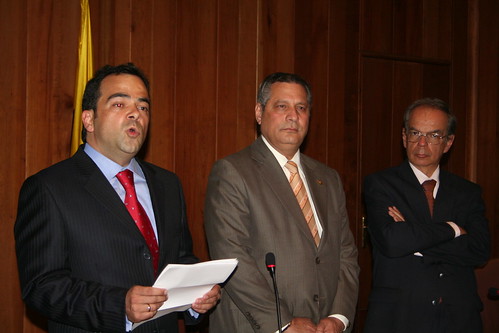WATCH: Auditor general report deems Greenbelt re-zoning ‘not necessary’
Auditor General #AuditorGeneral

Ontario’s auditor general Bonnie Lysyk has released the Special Report on Changes to the Greenbelt, deeming the alterations made as “not necessary” to reaching the province’s housing target.
In a statement Wednesday, Lysyk said, “The exercise to change the Greenbelt boundaries in Fall 2022 cannot be described as a standard or defensible process.”
WATCH MORE: Waterdown rally opposes Doug Ford’s Greenbelt development plan
The audit focused on the necessity of the change to meet housing needs, the criteria and process of selecting sites for re-zoning, environmental and financial impacts, as well as the consultation process with affected municipalities.
Meeting Housing Criteria
The audit found that the changes made were not necessary to meet the 1.5 million unit housing target as Housing Minister Steve Clark had previously allocated the entirety of the land needed in October 2022, one month before the proposal to rezone was made.
Site Selection
The auditor general says the selection of the sites for re-zoning was not “transparent, objective or fully informed,” with 21 of the 22 sites being considered chosen directly by the Housing Minister’s political staff, despite over 500 Greenbelt-removal requests having been submitted to the ministry.
Five of the sites which were ultimately removed from the Greenbelt were proposed by three prominent developers to the Minister’s staff, accounting for 92 per cent of the acres opened for development.
WATCH MORE: Hamilton city councillors upset with Ontario’s handling of Greenbelt development
Ultimately, 14 of the 15 sites chosen were proposed by the Minister’s staff.
The report details a team of non-political public service staff in the Housing Ministry directed by Minister Clark’s Chief of Staff leading the selection process with criteria provided by the Ministry.
It says that this group was directed to alter criteria while imposing a three-week timeline and confidentiality provisions in order to “limiting the team’s time and ability to assess the land sites and provide alternatives.”
Environmental Risk
Findings indicate that the approval of this decision was “inconsistent with the vision, goals and processes of the Greenbelt Plan to provide important natural features and agricultural land with permanent protection.”
WATCH MORE: MPP Neil Lumsden on Ontario’s decision to develop parts of Greenbelt
The Ministry of Agriculture, Food and Rural Affairs predicts the removal will likely lead to “significant adverse impacts” due to the size of the land areas, the existing agricultural uses and connections to farmland close by.
Additionally the report points to concerns with the lands added to the Greenbelt to offset the rezoning, with 2,400 acres of the added areas already under protection, largely undevelopable and “do not contribute agricultural land protection.”
Financial Impacts
While the Ford government publicly spoke of an expectation that developers pay for new infrastructure on these sites, the report found a failure to define these expectations in a manner that they could be monitored, measured and publicly reported.
As of July 3, there has been no formal agreements made for developers paying to service the land in advance of construction, according to the report.
WATCH MORE: Ontario integrity commissioner launches Greenbelt investigation
Lysyk estimates that developers and landowners of these 15 areas could see as high as a $8.28 billion increase in land value.
Public Consultation
The report further outlines a failure of the Ford government to conduct public consultation required under the Environmental Bill of Rights, which effectively limited the public’s ability to understand and comment on the proposed changes and the potential impacts on their communities.
The province additionally failed to properly consult with Indigenous communities and changes to address any publicly raised concerns were not made.
WATCH MORE: City staff oppose Ford governments plan to build 1.5M homes on Greenbelt land
Lysyk concluded the report by addressing the need for government to act in the housing crisis in a manner that does not “sideline or abandon protocols and processes” essential to ensuring objective decision-making.